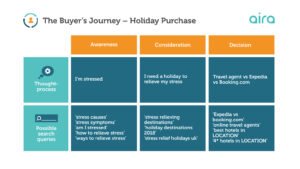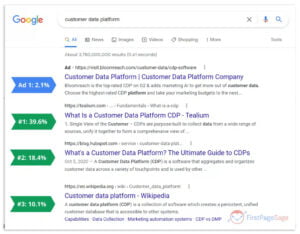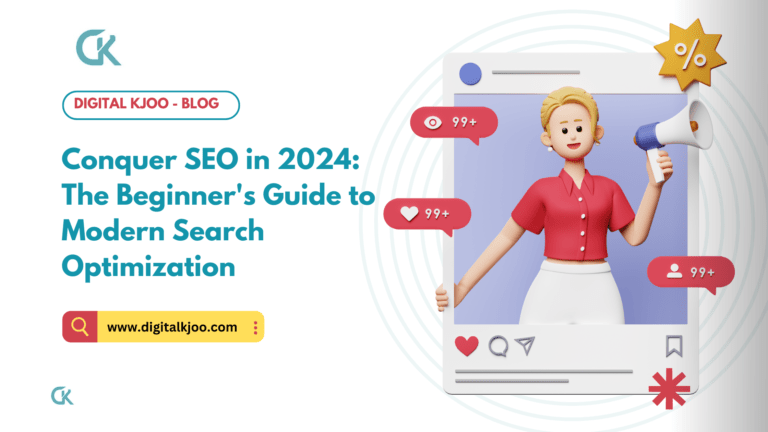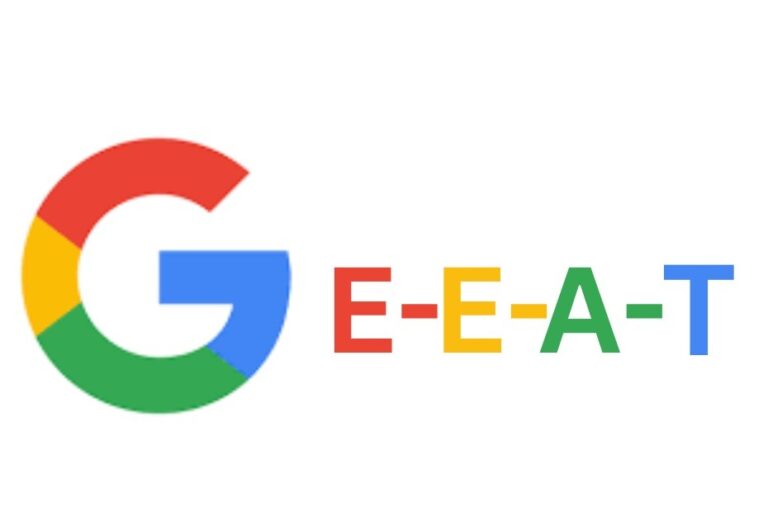In the realm of digital marketing for businesses, the age-old adage rings true: “Content is king,” specifically, content marketing.
This powerful strategy has gained immense traction, with a remarkable 70% of marketers presently channeling their efforts into content strategies. Additionally, an impressive 72% of these marketers attribute their success to having a robust content strategy in place.
For small businesses, content marketing assumes an even more pivotal role. Smaller enterprises often grapple with limited marketing resources compared to their larger counterparts. This is precisely where content marketing shines, offering one of the highest returns on investment (ROI) for every marketing dollar invested. Furthermore, it is a strategic approach with lasting benefits, capable of yielding dividends long after its implementation.
To underscore this point, let’s delve into the core principles of content marketing and why it stands as an absolute necessity for small businesses.
Why Should Small Businesses Embrace Content Marketing?
Content marketing is a powerful tool for small businesses. Its primary goal is to grow and engage a customer base, fostering brand loyalty and boosting sales. Unlike paid advertising, content marketing offers something valuable to the audience, building trust.
It’s an incredibly effective strategy. Surveys reveal that 70% of people prefer learning about a business through articles and other content. Small businesses can harness various content types across different channels to establish themselves as experts, enhance their public presence, and showcase their products and services. It’s a strategy that ticks all the right boxes.
How to Create an Effective Content Plan for Your Small Business?
Before diving into building a content marketing plan for your small business, you need to lay the groundwork. Start by conducting thorough research to understand your target audience. Here’s what you should do:
1. Gather feedback from existing customers through surveys.
2. Study your competitors’ social media presence.
3. Perform keyword research.
4. Analyze the content produced by industry leaders.
This research will provide valuable insights to create a content strategy that resonates with your audience. But preparation doesn’t stop there.
You also need to ensure that your business website and social media accounts are ready to showcase and promote your content. This involves optimizing your website for conversions to make the most of the traffic generated by your content. Additionally, engage your social media audience by letting them know that valuable content is on the way. This primes them to eagerly consume your content and makes launching your first content campaign much smoother.
Once these preparations are in place, you can move on to crafting your content marketing strategy, keeping these key factors in mind.
How Content Marketing Boosts Small Business Recognition?
When deciding what content to create and what topics to cover, remember that your goal is to build a relationship with your customers. It’s crucial to ensure that your content always reflects your small business’s brand voice consistently. Maintaining a uniform tone and quality is vital because every piece of content represents your business.
Keep in mind that content marketing has a double-edged nature. One poorly thought-out or badly executed piece of content can hinder your entire strategy. It’s wise to plan for scaling up content creation before implementing a new content strategy to avoid issues, mistakes, and disruptions. This approach can ensure consistent high performance and excellent long-term brand-building results.
Benefits of Using Content Marketing
1. Content Marketing Establishes Authority on Your Owned Platform, Not Borrowed Space
Content marketing’s core purpose is to establish your brand’s authority and nurture relationships with potential customers. This happens on your website, where you have full ownership of the content you publish. Unlike social media, where platforms are owned by large corporations (like Twitter, Facebook, Instagram), your website is your territory.
On your website, you own your content assets. In contrast, on social media, you don’t technically own what you post. If a social media platform vanishes or your account faces issues, your content and your way of connecting with your audience disappear as well. Moreover, social media platforms frequently change their algorithms and rules, affecting your visibility.
That’s why content marketing is a smarter and more sustainable choice for growth.
2. It Builds Unmatched Trust with Your Audience
When a brand creates educational content that speaks directly to its audience’s questions and challenges, it can quickly earn trust. Researching and understanding your ideal customers deeply is a crucial part of content marketing.
Content marketing is not about pushing sales but about providing valuable assistance. By consistently helping your audience with personalized content, you demonstrate both your expertise and empathy.
In the end, this empathy shows your potential customers that you care, that you truly understand their problems. The fact that you can offer solutions (your products/services) is the icing on the cake.
3. Content Marketing Attracts More Valuable Leads
High-quality leads are individuals who are likely to become customers for your brand. They can be divided into two groups:
- Those who already know your brand, understand your expertise, and are ready to make a purchase.
- Those who recognize they have a problem, know the solution they need, and are seeking the best option.
So, how does content marketing attract these types of leads?
It’s through targeted SEO (Search Engine Optimization).
SEO and content work hand in hand. By including the right keywords with specific search intent in your content, you can attract leads searching for answers or solutions you offer.

Different types of keywords bring in leads at various stages of their buying journey:
- Awareness stage: They realize they have a problem and seek more information.
- Consideration stage: They grasp the problem and are ready to find the best solution.
- Decision stage: They are aware of potential solutions and are ready to make a choice.
During their searches, people use certain terms or phrasing that indicate how close they are to making a purchase. Those in the “decision” stage are closer to buying than those in the “awareness” stage.
For instance, someone looking to address stress might use different keywords depending on their stage in the journey.
4. Content Enhances Search Engine Visibility for Improved Ranking
Consistently delivering top-notch content plays a vital role in securing higher search engine rankings. A website filled with such content becomes more robust, helpful, and engaging to its audience, which search engines appreciate.
Claiming the top spot in search results is not only about increasing online visibility but also driving more traffic to your site through searches. Recent data shows that the #1 position in Google’s organic (non-paid) results boasts an impressive 39.6% click-through rate (CTR), indicating the percentage of people who click on that link.
The #2 position, on the other hand, has a CTR of 18.4%. If you venture further down to the bottom of Google’s first page, you’ll find that the #9 and #10 positions have significantly lower CTRs, around 2%.
It’s worth noting that paid search ads, which often appear at the top of Google before organic results, typically have CTRs of about 2%. People tend to scroll past these ads in search of organic results. Therefore, achieving a top organic ranking on Google garners more clicks and drives the most traffic. Creating top-notch content through content marketing paves the way to reaching this coveted position.

5. People Prefer Content Over Advertisements
Let’s be honest: Content marketing is popular because it aligns with what consumers actually want.
And what do they want? Well, 62% of B2B buyers read 3-7 pieces of content before talking to a salesperson. Plus, a whopping 70% of people would rather read an article about a company than see an ad.
Don’t overlook ad blockers either. More and more people are using them, with 290 million users each month.
Times have changed, and so have consumers. They like to research before buying, seek out the best options, and prefer brands they trust with similar values.
Content marketing checks all these boxes, delivering content when and where consumers need it.
6. It cultivates loyal fans from customers.
Content marketing is a nurturing approach. It forges relationships with your audience by providing valuable content that meets their needs and interests. As people keep engaging with content designed just for them, trust develops.
Repeat this process over time, and you won’t just gain customers but dedicated fans who keep coming back.
Content Marketing is the Here and Now, Shaping the Future of Marketing
Content marketing is crucial because it’s the current and future of marketing. It aligns with how consumers prefer to be reached, nurturing them, fostering loyalty, and improving customer retention. It’s also more cost-effective and sustainable than traditional marketing, yielding better leads and ROI.
Furthermore, content marketing is the right way to approach SEO, helping you secure top Google positions. It enhances your website for both users and search engines, contributing to a better internet experience.
By focusing on your website, content marketing allows you to establish authority on your turf, not just on social media platforms you don’t own.
In simple terms, content marketing is a smart and valuable way to build your brand and should be a part of every business’s growth strategy. If you haven’t started yet, it’s time to take the plunge. What’s holding you back?









